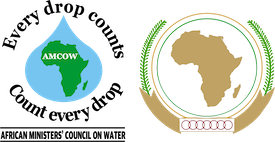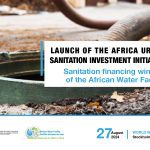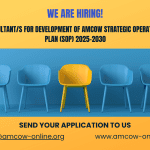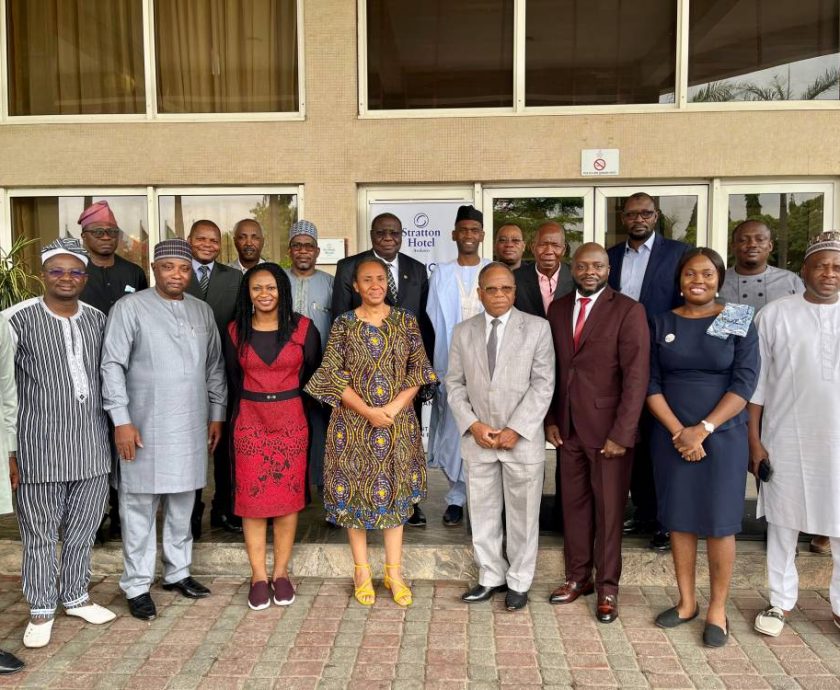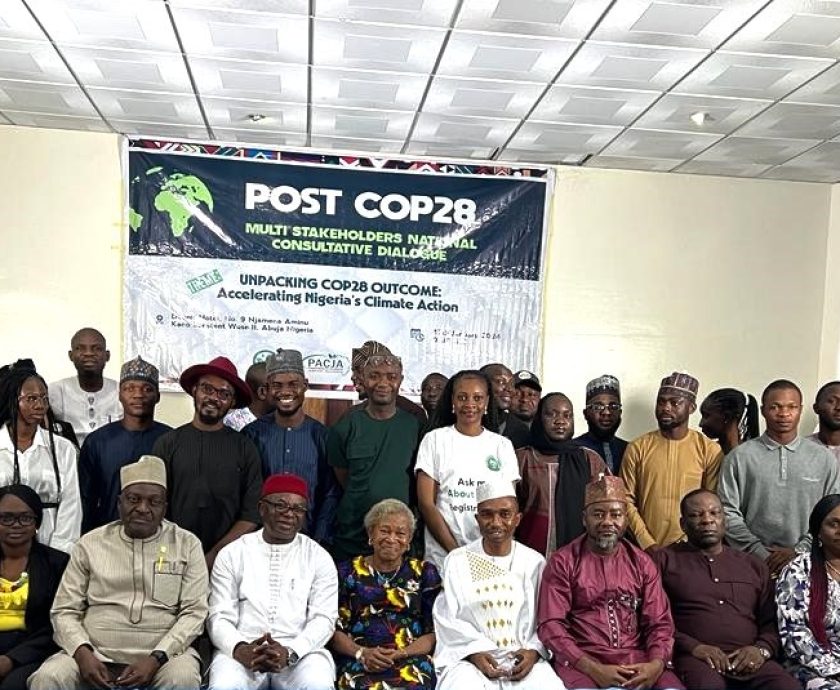On August 27, 2024, the African Ministers’ Council on Water (AMCOW), in collaboration with DHI, convened a session titled “The Hub of Hubs: Knowledge Sharing Platform for Peace” at the 2024 World Water Week in Stockholm. The session, moderated by Louise Heegaard, promoted efforts to operationalise AMCOW’s continental knowledge-sharing platform for supporting water and sanitation management across Africa.
Dr Tahani Sileet, Minister Assistant for International Cooperation at the Ministry of Water Resources and Irrigation, Egypt and AMCOW TAC Chair, opened the session with a keynote address. She underlined the platform’s importance for achieving water-related goals and priorities in the African Union’s Agenda 2063. Following Dr Sileet, various sector speakers highlighted key knowledge management initiatives.
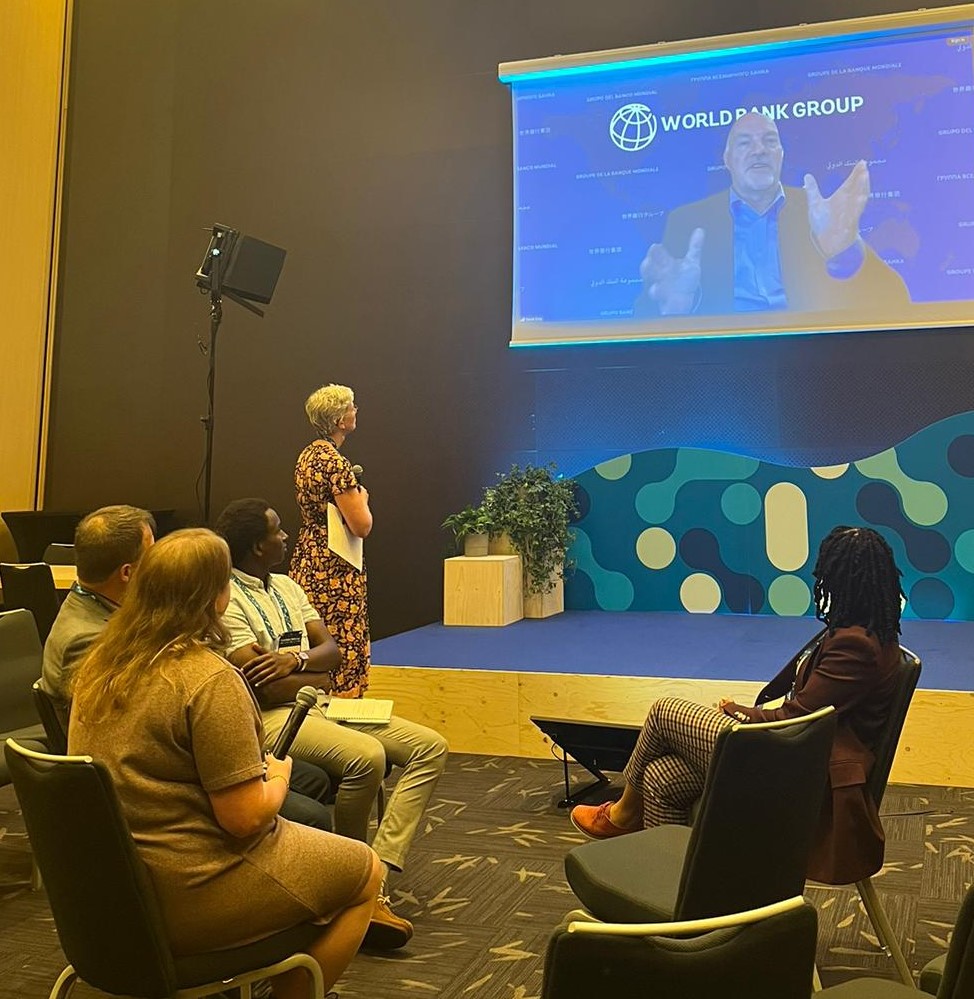

Department of Water and Sanitation, South Africa, shared its Knowledge Management Strategy, emphasising the need to move from mere data and information gathering to active knowledge sharing. The strategy demonstrated how co-creation and integration can reduce redundancy and enhance resource efficiency. Senegal’s Pole Eau Dakar (PED) initiative was presented as a case study, showcasing how effective implementation can promote regional knowledge sharing. The Congo Basin Catchment Information System (CB-CIS) offered a system-thinking approach to managing large river basins and highlighted the importance of cross-boundary data collaboration. The World Bank introduced innovative uses of Information Communication Technologies (ICTs) to advance knowledge-sharing within the water sector, stressing synergies between the Hub of Hubs and the World Bank’s information systems and learning networks.
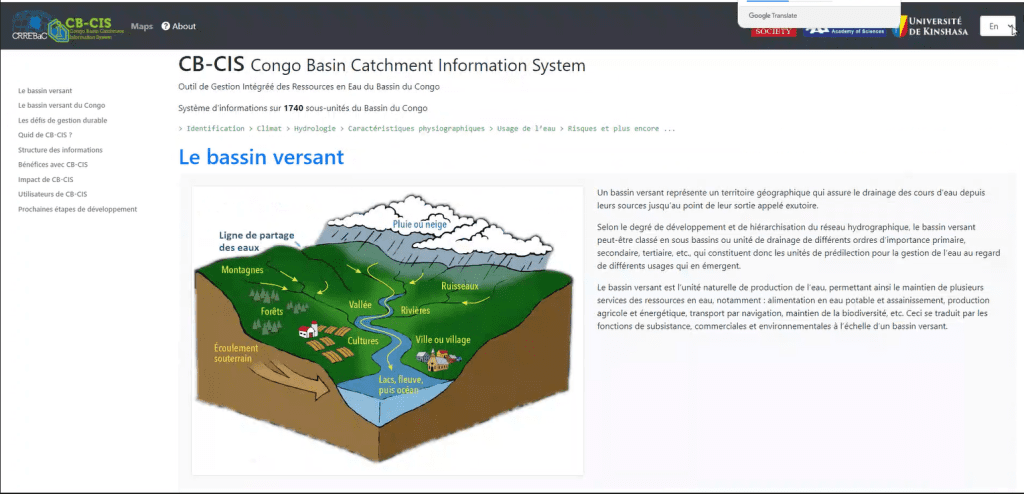

AMCOW’s WASSMO System (currently under update) was showcased as an integral component of the Hub of Hubs, with new features to include AIP-PIDA Water Investment Scorecard indicators, facilitating evidence-based decision-making. Preliminary findings of the AMCOW Knowledge Management Audit revealed the participation rate and feedback from member states, along with recommendations for advancing knowledge-sharing practices. To wrap it up, Code Kraft presented the technical backbone of the Hub of Hubs, illustrating how ICT can be leveraged to create sustainable knowledge-sharing systems.
The session identified several challenges in knowledge management across the African water sector, such as inadequate resources, low prioritization of knowledge development, and fragmented efforts in moving from data collection to actionable knowledge. However, innovative solutions were also proposed, including expanding AMCOW’s knowledge audit, strengthening the WASSMO system, and increasing member-state participation. An ambitious goal was to identify 110 focal points (two per member state) to enhance the platform’s mandate.
Participants shared their thoughts on transferring data into practical knowledge in an engaging fishbowl-style discussion. A representative from World Waternet, an implementing partner in Kenya, sought guidance on connecting with AMCOW’s focal points. Others, like participants from Lesotho, discussed challenges with accessing country-specific data, underscoring the need for more transparency and reciprocity in data-sharing.
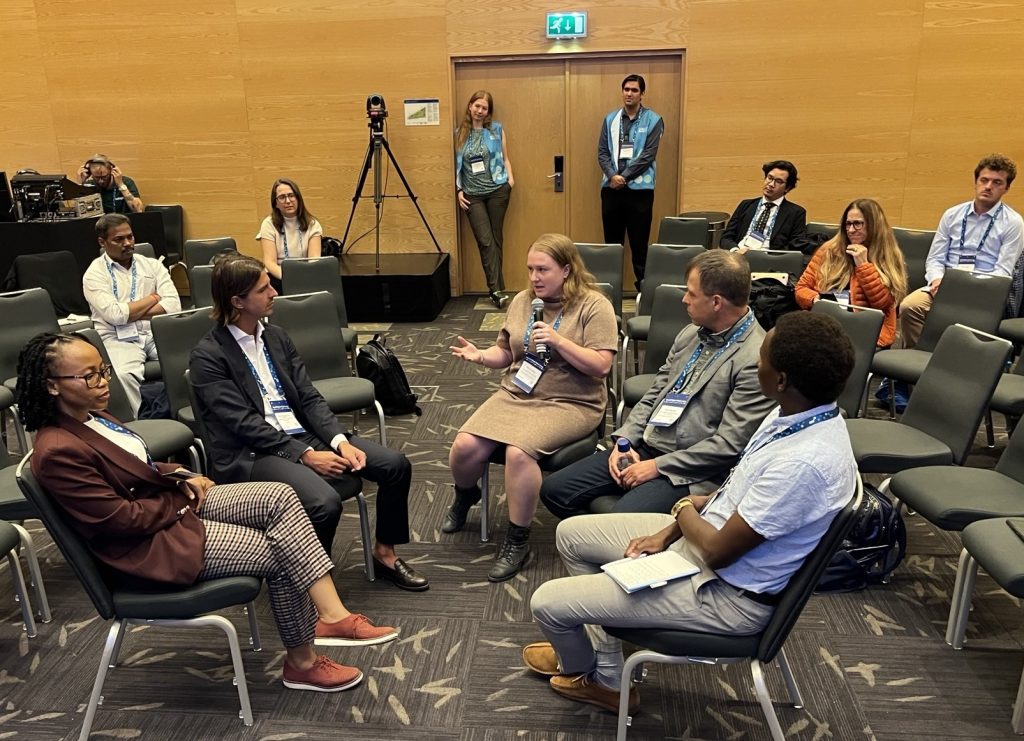

The session also explored potential avenues for expanding AMCOW’s network, including suggestions to use LinkedIn as a connector for knowledge exchange and collaboration.
The session concluded with several action points aimed at sustaining the momentum. These include planning a technical workshop during Africa Water Week in Cairo, continuing discussions with key financiers and drafting a two-page follow-up proposal to negotiate long-term support for the Hub of Hubs initiative.
In terms of engagement, the session saw active online and onsite participation, with representatives from key organizations expressing interest in further collaboration. The World Bank, IWMI, GIZ, and Business Connect L3C were among them. These partners highlighted the importance of networking and knowledge integration, positioning AMCOW’s Hub of Hubs as a critical driver for achieving Africa’s water security goals.
As AMCOW continues to champion knowledge management for Africa’s water and sanitation sectors, this 2024 World Water Week session marks a significant step towards realizing a unified, accessible, and impactful Hub of Hubs platform that fosters collaboration, innovation, and sustainable development across the continent.
